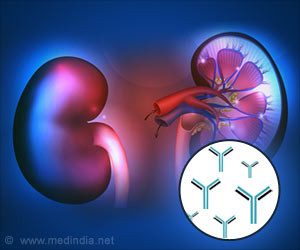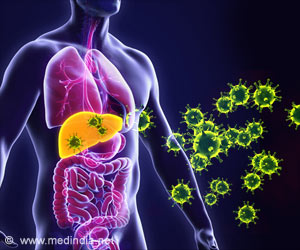Highlights:
- Kidneys from donors infected with hepatitis C virus (HCV) are safe and function equally well compared to uninfected kidneys even one year after the transplant
- With the availability of newer and highly effective antiviral treatments for HCV, HCV-infected kidneys can be used safely for transplant in recipients who are HCV negative
- Transplant centers should maximize the use of good quality kidneys even if infected with HCV
- There has been a surge in the number of transplant centers using HCV-infected kidneys for transplant since the early part of 2019
Read More..
Why Kidneys From HCV Positive Donors Not Routinely Used For Transplant?
Here’s why hepatitis C virus (HCV)infected kidneys were not used for transplantation:- Hepatitis C infection (HCV) can injure kidneys
- Infection can be transmitted to the recipient
- The functional efficacy of HCV infected kidneys was not clear
- Earlier studies had shown promising results, but bigger studies across the country were needed to confirm the earlier findings in order to be accepted by transplant centers
Safety & Efficacy of HCV Infected Kidneys Used For Transplant
HCV positive donors have drastically increased in the last couple of decades due to the opioid epidemic and presently nearly two million American adults are infected with HCV. Until 2015 HCV infected kidneys were discarded, but initial studies in 2015 showed promising results in recipients of HCV infected kidneys.In order to confirm the safety and functional efficacy of HCV infected kidneys, the study team comprising Vishnu S. Potluri, MD, MPH, Peter P. Reese, MD, MSCE and David S. Goldberg, MD, MSCE (University of Pennsylvania) and other team members looked at the national transplant registry data on the use of HCV-infected kidneys from 2015 to 2019.
Using the data, they compared outcomes in recipients who received uninfected kidneys to those who received HCV infected kidneys. The results are as follows:
- The team designed the study to create almost similarly matched sets, in which the donors and recipients had almost similar parameters qualities such as age, weight or history of hypertension, differing only in HCV status
- The team then used the Chronic Kidney Disease Epidemiology Collaboration equation, a widely used mathematical calculation to estimate the glomerular filtration rate (eGFR) of each recipient (GFR is a measure of kidney function and the lower the value, the poorer the kidney function. Values below 60 are considered abnormal)
- One year post-transplant, the study team found that recipients who received HCV-infected kidneys had an eGFR of 66.3 compared to an eGFR of 67.1 in recipients of uninfected kidneys
- A heartening finding was that the team found both transplant centers, as well as patients, were willing to accept the organs
- From 11 transplant centers in 2015 using HCV infected kidneys, the numbers surged to 39 centers during the first three months of 2019
"Our study showed that transplants with HCV- infected kidneys are now routinely performed at many centers, and they are functioning well at one year after transplant," said Dr. Reese. Added Dr Potluri, "These findings represent a small, but important victory, in the effort to make every organ donation count."
Scope of Study and Encouraging Trends
- HCV kidneys that were earlier discarded will now be available and benefit more patients with end-stage kidney disease (ESRD)
- With effective antiviral treatments available, transplant followed by antiviral therapy provides very good outcomes for kidney transplant recipients
- Both patients and transplant centers are more open to accepting the organs following the findings of the national study
- The number of transplant centers using HCV-infected kidneys has more than tripled from just 11 in 2015 to nearly 40 in the early part of 2019
- Criteria for accepting or rejecting kidneys should be reviewed and gaps addressed so that more patients benefit
Reference:
- National Trends in Utilization and 1-Year Outcomes with Transplantation of HCV-Viremic Kidneys - (https://jasn.asnjournals.org/content/early/2019/09/12/ASN.2019050462)
Source-Medindia
















